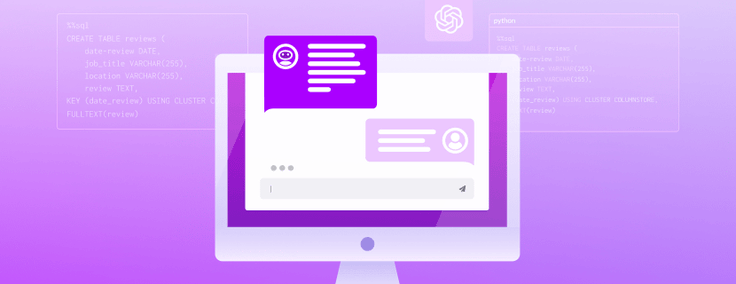
Since its launch in November 2022, Open AI’s ChatGPT has taken the world by storm. It’s a powerful language tool that taps into the unique capabilities of Artificial Intelligence (AI), helping users with tasks from writing emails to generating catchy names for a new podcast.
ChatGPT’s ability to predict and generate text comes from its ability to learn from high volumes of data. It continually iterates based on what users input, allowing it to deliver more accurate outputs with smaller margins of error.
While ChatGPT has an impressive array of capabilities, it also has its limitations. Mainly, it can only generate text that is similar to the text it was trained on. For everyday users tapping into publicly available data and information, this isn’t an issue — but what if you want to use ChatGPT to generate responses dependent on your own data sets?
Imagine you want to sort customer reviews based on sentiment, or you’d like to make it easy for employees to search internal documentation to find answers to their questions. Using your own data, you can create a repository of information to sort through, empowering the tool to generate responses based entirely on your proprietary information.
We’ll walk you through what you need from a database — like SingleStoreDB — to store your relevant company data, creating a centralized source of truth for ChatGPT to reference when generating responses to your questions.
Why SingleStoreDB for ChatGPT
The next iteration of ChatGPT for businesses includes using it against custom company data — and that starts with the right database. To be efficient with search results and query speed, you want a database that:
- Stores and queries large amounts of data in various formats
- Features real-time functionalities like low latency and high concurrency
- Stores data as vectors and includes semantic search capabilities to find relevant data in milliseconds

SingleStoreDB is the ideal database for using ChatGPT with custom data sets. Not only can you ingest data row-by-row and query it for real-time analytics, but it also stores vector data and performs semantic searches, and has pre-built pipelines to pull that data from different sources — eliminating the need for extensive extract, load and transform (ETL). This is key for tasks like answering questions, generating text, translating languages, iterating on responses and more.
Other features that make SingleStoreDB the ideal database to use with ChatGPT include the ability to:
- Store data in several formats, including vectors
- Run native vector functions like
dot_product - Use a variety of database query languages, including SQL
SingleStoreDB’s distributed architecture enables it to process data at ultra-fast speeds, while also handling large volumes of data in real time — making it the ultimate tool when using ChatGPT.
Curious to see how this works? Check out this article on The New Stack from our CMO, Madhukar Kumar that gives you a step-by-step guide to using custom data with ChatGPT.
Build a ChatGPT App on Your Own Data With SingleStoreDB
We believe the next iteration of ChatGPT will be the ability to use it against data that isn’t publicly available, allowing users to tap into their pool of custom data sets. Join us for an exclusive event on April 25, where you’ll learn to build a ChatGPT application on your own data using SingleStoreDB.
We’ll also walk through SingleStoreDB’s native support for efficient vector functions to power generative AI with simple SQL queries, and learn practical techniques and approaches for building intelligent chatbot applications.
The foundation for building your chatbot apps starts with SingleStoreDB. Register today.





